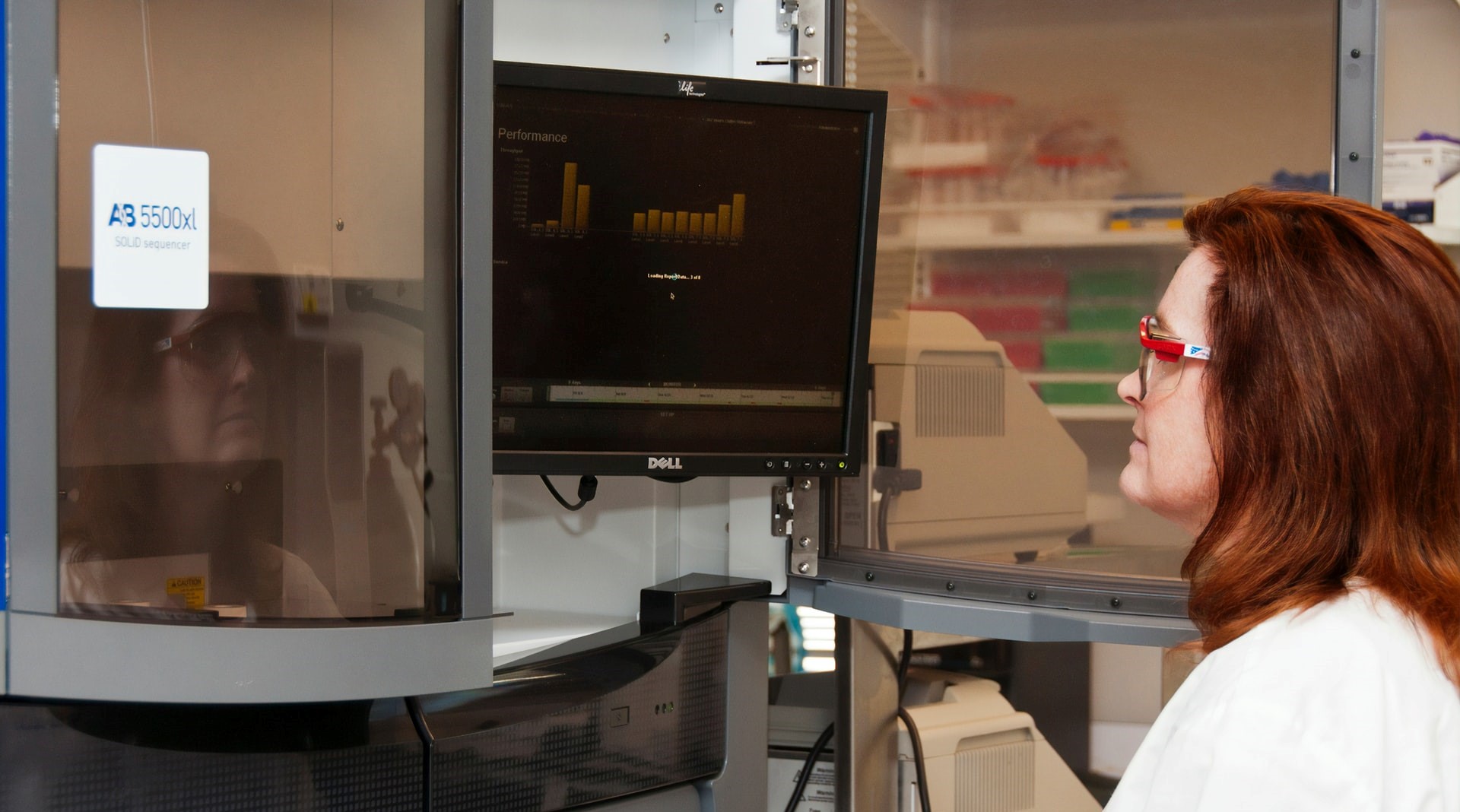The lower costs of DNA synthesis and sequencing, as well as the advances in genetic engineering, have allowed synthetic biology to expand into new research fields [1]. Nowadays, synbio holds some of the most promising solutions to address present and future global humanitarian needs, including the Sustainable Development Goals [2]. Engineered organisms have the potential to create renewable sources of energy, enhance product life cycles, protect the environment and its biodiversity, increase food sustainability, and improve health [3]. However, synbio’s full potential is yet to be achieved — and artificial intelligence could play a big role in reaching this potential.
One of the challenges that synbio faces nowadays is that most recent advances are not applicable “outside-the-lab”, where conditions are far more diverse and variable than those of a laboratory setting [1,2]. To be successful, outside-the-lab platforms should be genetically and functionally stable over long periods of time in a variety of storage conditions and should only need a minimal amount of resources and equipment to operate, as well as minimal intervention by experienced professionals [2].
However, as of today, it remains difficult to engineer microbes that are stable in outside-the-lab conditions while carrying out processes that they would never perform in nature. Microbes have adapted and evolved to respond to certain challenges in their natural environment, but not to work as microscopic factories in industrial fermenters and bioreactors. Therefore, while it is possible to generate a wide variety of designer molecules, the trial-and-error process that is often used to achieve this rarely generates sufficiently robust rewards to justify the investment [1].
But we have an ace up our sleeve: technology. In particular, artificial intelligence and machine learning, which can help the field move on from this inefficient process and help us build designer molecules through the rapid analysis of big and complex sets of data.
Learning the ropes
One of synthetic biology’s engineering principles is the Design-Build-Test-Learn (DBTL) cycle, a loop used repeatedly to obtain a design that satisfies the desired characteristics (e.g a particular yield or product) [4, 5]. Machine learning helps with the Learn phase, which is critical to accelerate the full cycle, as it leverages the data previously generated to inform the next Design step to converge to the desired specification faster than through a random search process [4, 5].
A research team from the Lawrence Berkeley National Laboratory in California (USA) developed a tool that leverages machine learning for synthetic biology’s purposes: the Automated Recommendation Tool (ART). They tested this tool in different real-life scenarios to see how it performed. The results were quite promising: in two out of three cases ART successfully provided a predictive model, as well as recommendations for the future round [4].
Thanks to it, researchers could improve molecule production as well as reach particular levels of molecules to get the desired outcome. However, in the third scenario the machine learning algorithms were not able to produce accurate predictions because there was not enough data for training [4]. Thus, in this study, as well as in many others, the scientific community highlights the importance of data.
In the lookout for more and better data
Large sets of data obtained from the measurement of multiple parameters of cell behaviour are necessary to build strong models that can help us design and implement useful modifications of genetic circuits.
And how can we obtain more and better-quality data? Surprisingly, part of the solution lies again in artificial intelligence, which could also help us to automate lab work. Automation is a reliable way to obtain high-quality, high-volume and low-bias data, which is necessary to train artificial intelligence [5].
The fastest progress on this challenge is currently happening at biofoundries and companies operating as “cloud-labs”, which offer their software and platforms to researchers to help them accelerate the DBTL loop through automation [3]. For example, developing lab robots capable of carrying out experiments with high accuracy and fast speed that improve experimental reproducibility. Alongside this, they have also developed data handling tools that ensure the traceability of errors and statistical software able to analyse large sets of data to generate useful information that allows to improve the design of experiments, thereby closing the DBTL cycle [3].
However, these advances would only drive the field forward if there are agreed-upon standards of design, assembly, data transfer and regulatory rules within the community. Without them, interdisciplinary and international collaboration will be hindered and many of synbio’s products and processes won’t work effectively in industrial settings.
Therefore, the future advances in artificial intelligence and automation of processes, as well as standardisation of data, might be key to achieve better results in synthetic biology and move into industrialization and outside-the-lab conditions so that anyone, anywhere can benefit from its applications.
References
- El Karoui, M., Hoyos-Flight, M. and Fletcher, L. (2019). Future Trends in Synthetic Biology—A Report. Frontiers in Bioengineering and Biotechnoly. 7:175. doi: 10.3389/fbioe.2019.00175
- Brooks, S.M., Alper, H.S. (2021). Applications, challenges, and needs for employing synthetic biology beyond the lab. Nature Communications 12, 1390 https://doi.org/10.1038/s41467-021-21740-0
- Gallup, O., Ming, H., Ellis, T. (2021). Ten future challenges for synthetic biology. Engineering Biology5( 3), 51– 59 https://doi.org/10.1049/enb2.12011
- Radivojević, T., Costello, Z., Workman, K. et al.(2020). A machine learning Automated Recommendation Tool for synthetic biology. Nature Communications11, 4879 https://doi.org/10.1038/s41467-020-18008-4
- Eslami, M., Adler, A., Caceres, R. S., Dunn, J. G., Kelley-Loughnane, N., Varaljay, V. A. and Garcia Martin, H. (2022). Artificial intelligence for synthetic biology. Communications of the ACM 65, 5, 88–97. https://doi.org/10.1145/3500922
